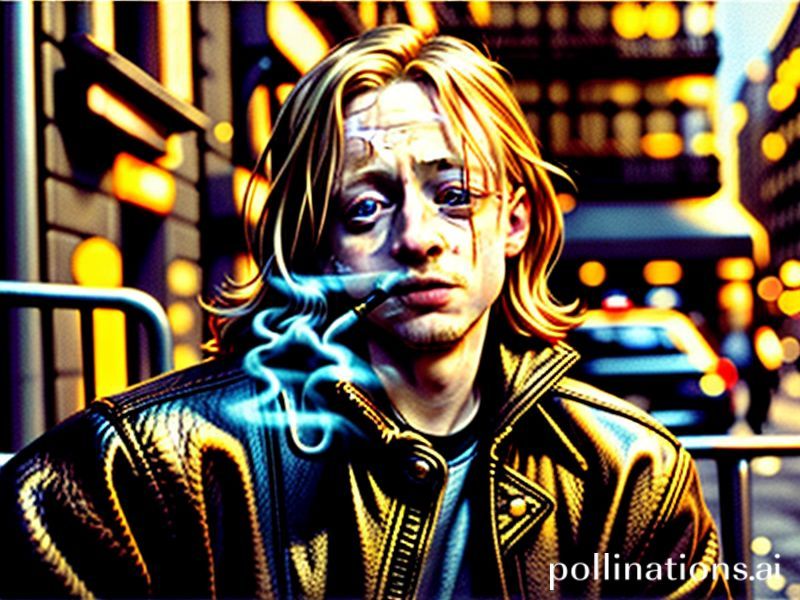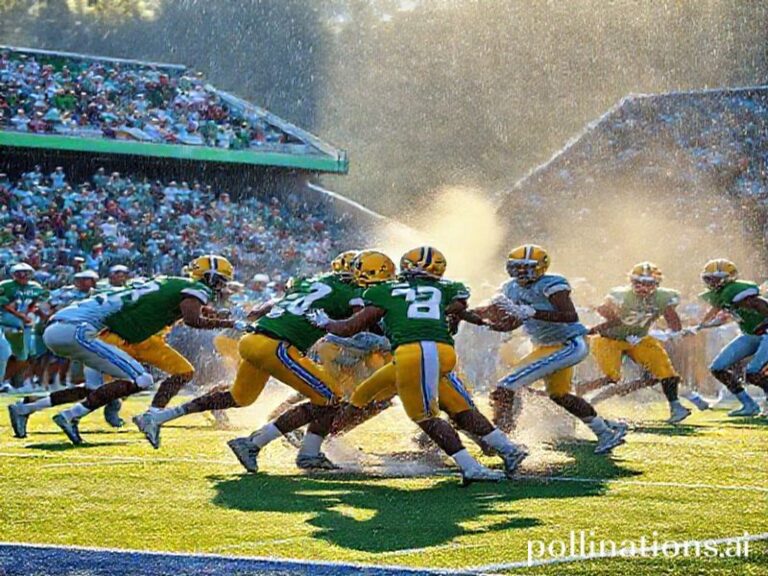Macaulay Culkin: The World’s Favorite Survivor of Global Fame and Other Childhood Traps
**The Global Afterlife of a Home Alone Star: Macaulay Culkin’s Second Act as a Pop-Culture Relic**
By the time the Berlin Wall was rubble and the Soviet Union was busy auctioning itself off, a nine-year-old from Manhattan had already conquered the planet armed with nothing sturdier than a VHS tape and a BB gun. *Home Alone* (1990) didn’t merely open in 1,200 American multiplexes; it parachuted into post-Cold-War consciousness like a McDonald’s franchise in Ulaanbaatar—loud, profitable, and impossible to ignore. From Lagos bootleg markets to Warsaw’s first neon-lit video stores, Macaulay Culkin’s cherubic scream became the universal Esperanto of late capitalism: “Ahhh!” translated fluently into 40 languages and three dialects of profit margin.
Fast-forward three decades and the same face—now gaunt, tattooed, and wryly amused by its own obsolescence—has become a reverse souvenir: instead of us taking him home, he takes home wherever he goes, like a snow globe that refuses to settle. The French call it *la postérité kitsch*; the Japanese sell it as “Showa nostalgia”; Americans simply binge it on Disney+ while doom-scrolling. Whichever continent you’re on, Culkin is the rare child star who survived the international fame abattoir without becoming either a cautionary exhibit or a politician. (The two professions overlap more than either cares to admit.)
Consider the arithmetic of planetary recognition: 1.7 billion VHS rentals, 800 million DVD sales, and an estimated 3.2 trillion memes of his hands-on-face howl. Those numbers look absurd until you realize they’re the same order of magnitude as global COVID vaccinations—except one prevents disease and the other prevents you from forgetting what 1992 smelled like. In other words, Culkin is the herd immunity of millennial memory; even if you never caught the original virus, the antibodies are in your bloodstream via TikTok remixes and ironic T-shirts printed in Bangladeshi sweatshops.
Now 43, he performs a delicate geopolitical trick: owning his own stereotype before the world can repackage it. While other former child luminaries run rehab centers in Malibu or authoritarian fiefdoms in Eastern Europe, Culkin co-founded a satirical website, Bunny Ears, whose business model appears to be “Goop for people who hate Goop.” It sells $90 incense that smells like expired pizza and hosts articles such as “How to Meditate While Your Empire Crumbles.” Revenue is laughable, influence incalculable—rather like the United Nations, but with better jokes and no Russian veto.
Overseas, his periodic cameos—*American Horror Story*, Google Assistant ads, a Pizza Hut commercial in which he reenacts childhood scenes with the bruised detachment of a war correspondent—are dissected like papal encyclicals. In Seoul, college seminars parse his self-irony as post-colonial resistance to American cultural imperialism. In Buenos Aires, graffiti artists stencil his 1990 face next to disappearing peso slogans: *“Solo estás solo si no tenés plata”*—you’re only home alone if you’re broke. Even the Taliban, those connoisseurs of pre-2001 media, reportedly trade USB drives containing *Home Alone* dubs as morale boosters; apparently nothing steels holy warriors like watching a child outwit two incompetent invaders.
The broader significance? Culkin is the control experiment for what happens when the globe’s first truly transnational childhood grows up and refuses to exit stage left. He demonstrates that modern identity is less a narrative than a screensaver: looping, glitchy, occasionally updated but never replaced. Nations rise, currencies collapse, glaciers calve, yet somewhere a streaming algorithm queues up a 4K scream we’ve all agreed means “Christmas.” If that strikes you as pathetic, consider the alternative: we could be memorializing a different relic of 1990—say, the Taif Accords or the first Gulf War. Compared with sectarian partition and oil-field infernos, a grown man monetizing his past traumas with bunny-shaped bath bombs feels almost… utopian.
So here’s to Macaulay Culkin, the last shared bedtime story humanity may ever agree on. While superpowers pivot toward cold wars hot enough to melt the Arctic, he keeps the thermostat at a comfortable 68°F—just cool enough to remember what it felt like to be left behind, and just warm enough to sell you a hoodie commemorating the experience. The planet may be on fire, but at least we can watch the flames reflect off a snow globe that never quite learned to grow up.







